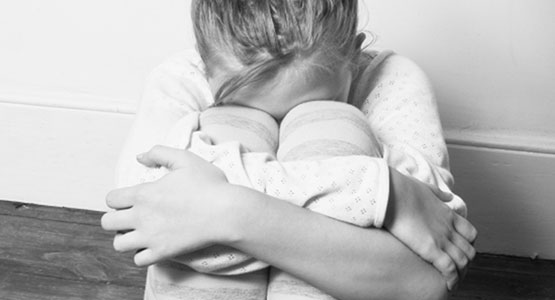Domestic abuse is to be reformed in Scotland – what happens if you find a false allegation being made against you?
 Reports of domestic abuse are increasing. In Scotland in 2013/14 the Crown reported that there had been a 35% increase of crimes with a domestic aggravation reported to them as compared to 2012/13. This reflects 36,552 cases crossing the desk of the Procurator Fiscal where domestic abuse is recorded. Over 80% of the complainers are female but the statistics show that the number of male complainers in increasing.
Reports of domestic abuse are increasing. In Scotland in 2013/14 the Crown reported that there had been a 35% increase of crimes with a domestic aggravation reported to them as compared to 2012/13. This reflects 36,552 cases crossing the desk of the Procurator Fiscal where domestic abuse is recorded. Over 80% of the complainers are female but the statistics show that the number of male complainers in increasing.
In our experience, it is often at the point of relationship breakdown that allegations of abuse first surface, which can lead to criminal and civil consequences for the abuser, and can make an already complicated and difficult situation even more tense.
Sadly, we have also seen occasions when partners in the heat of relationship breakdown make false allegations of domestic abuse against one another causing additional stress and conflict. This blog is to provide you with information about what will happen, and advice about what to do, if you find yourself falsely accused.
What is domestic abuse?
The police currently define domestic abuse in the following terms:
Any form of physical, sexual or mental and emotional abuse which might amount to criminal conduct and which takes place within the context of a relationship.
The relationship can be between partners (married, co-habiting, civil partnership or otherwise) or ex-partners. The abuse can be committed in the home or elsewhere.
It should be noted that ex-partners can be prosecuted for domestic abuse even when there is no longer co-habitation or indeed there never been co-habitation.
Domestic abuse currently includes several different Scottish criminal offences including assault, common law breach of the peace, sexual assault and stalking. In 2011 a new statutory form of breach of the peace was created which is defined very broadly as threatening or abusive behaviour. This has made it easier to prove a criminal offence in situations which can amount to little more than an argument.
The Scottish Government has also committed to introducing a new offence of ‘domestic abuse’ which is likely to include psychological abuse and controlling and coercive behaviour. This offence was recently introduced in England and Wales.
If an allegation of domestic abuse is made, it can have criminal and civil consequences and the need to act quickly and carefully if such an allegation is important given the far reaching criminal and/or family law implications that could arise.
Once an allegation has been made …
At the Police Station: In Scotland the police can detained you for up to twelve hours without charge during which time they are entitled to interview you. Our advice is to seek advice from lawyers who have expertise in both criminal and family law issues.
You are entitled to consult with a solicitor prior to being interviewed about a criminal allegation and you are entitled to have a solicitor present with you when you are interviewed. Whilst at the police station, you will probably be under a considerable amount of stress and feel that you have to answer questions. Remember that you do not have to answer police questions and that you have the right to remain silent. Unlike in England, exercising this right cannot be held against you later on in proceedings.
The protocol that the police use provides for very little discretion as to what takes place following an allegation of domestic abuse. If there is sufficient evidence, you will be detained, interviewed under caution and arrested to appear from custody on the next lawful day. If you are detained on a Friday this could mean that you are held until Monday.
At court: If you are held in custody to appear at court the next lawful day, you will have the opportunity to consult with your solicitor again at court. You will be brought to the cell area of the court and you will receive a copy of the official complaint against you.
Special bail conditions will be sought to ensure that you cannot return to the domestic setting, so even if you were previously cohabitating, you will have to find a new place to live. It is also common for the court to impose a special condition that you do not approach, or contact or attempt to contact in any way, the complainer. This includes text messaging and posts on Facebook. The special bail conditions can sometimes stop you entering the area where the complainer lives. This could be extremely disruptive and will often negatively impact many aspects of your life, including the time you spend with your children, your performance at work and your ability to afford alternative accommodation
The Crown has a policy to pursue allegations of domestic abuse, regardless of the views of the complainer. Therefore even if the person who has made the accusation of abuse asks to withdraw the allegation, i.e. to ‘drop the charges’, it is public policy for the Crown to continue with a prosecution even when an allegation has been withdrawn.
On conviction …
If you are convicted of a single offence of domestic abuse, then the court has a range of sentencing options available to it, including the imposition of the following: a monetary penalty, supervision order, unpaid work in the community or a custodial sentence. In domestic abuse cases, the court can also impose a non-harassment order for an unlimited period of time keeping you away from your ex-partner, with powers of arrest attached.
If a non-harassment order is not imposed, your ex-partner can ask the civil courts for an interdict with powers of arrest attached which can have the same conditions attached. Your conviction for a criminal offence will be used as justification for asking the court for that.
Impact of criminal cases on family law proceedings
From a family law perspective, it is important to consider how any allegations against you might affect you in any divorce, financial or children proceedings.
Allegations of domestic abuse can also involve Social Services and the police becoming involved in your children’s welfare. The involvement of Social Services can complicate any potential children proceedings and could limit your involvement in your children’s day-to-day care. Your credibility as a parent can also be brought into question and it can be difficult to disprove such allegations if the right action is not taken quickly.
Other considerations
If you are in a regulated profession, such as accountants, lawyers, those in the financial services industry or a medical professional, there may be obligations to disclose the fact of the arrest, charge or conviction to your regulatory body and suspension and disciplinary proceedings may follow.
Similarly, your employment contract may require disclosure of such events. Equally, if you are a person in the public eye, any such allegation, even if later disproved, can cause serious damage to your reputation.
Final advice
Facing these types of allegations is stressful and emotional but receiving legal advice to assist you in preparing and adopting a responsive, quick and robust strategy as early on as possible, is crucial.





